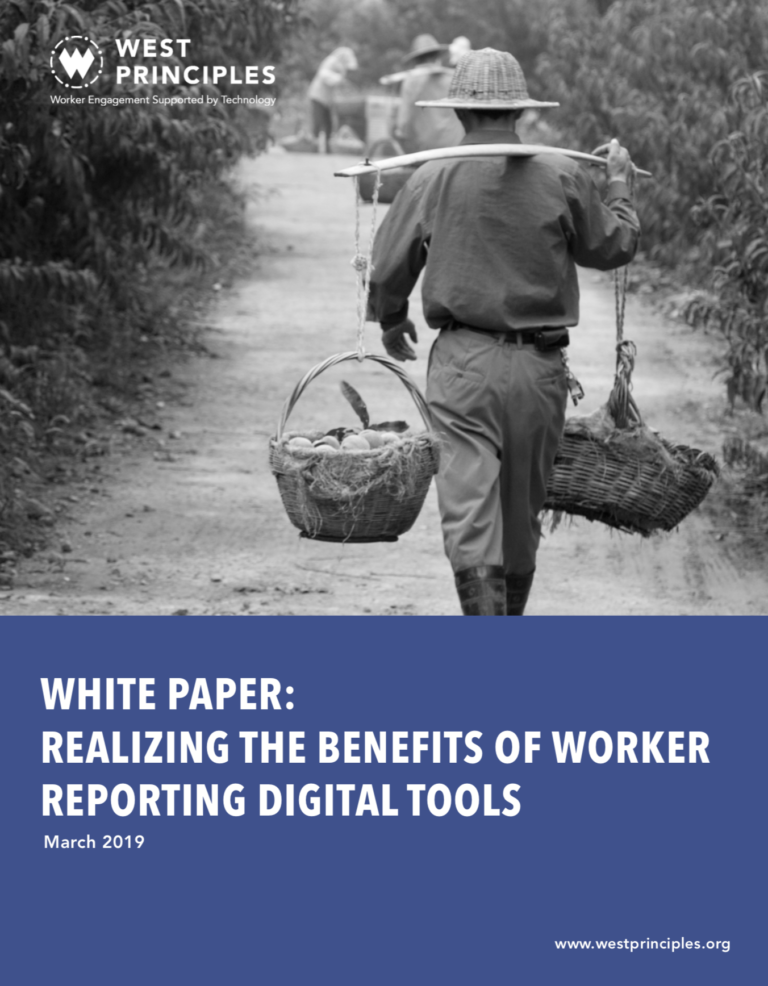This white paper seeks to promote broader – and meaningful – adoption of digital tools (phones, tablets, and web sites accessed via SMS, smartphone apps, hotlines, polls, social media, or other methods) used to gather information from workers in global supply chains about their needs, working conditions and experiences. The use of technology exposes workers to risks as well as opportunities which need to be clearly understood and acted upon. Technology enables better data relating to worker issues, and in some cases better communication between workers and their employers, but is not a solution in itself. An environment where institutions and people are open and prepared to negotiate improvements provides fertile ground for turning information into tangible labour improvements. In other words, the tools do not ‘solve’ anyidentified problems; solutions emerge when those receiving this informationrespond effectively and in a timely manner. The opportunity or risk likes in how technology interventions are designed and deployed.

